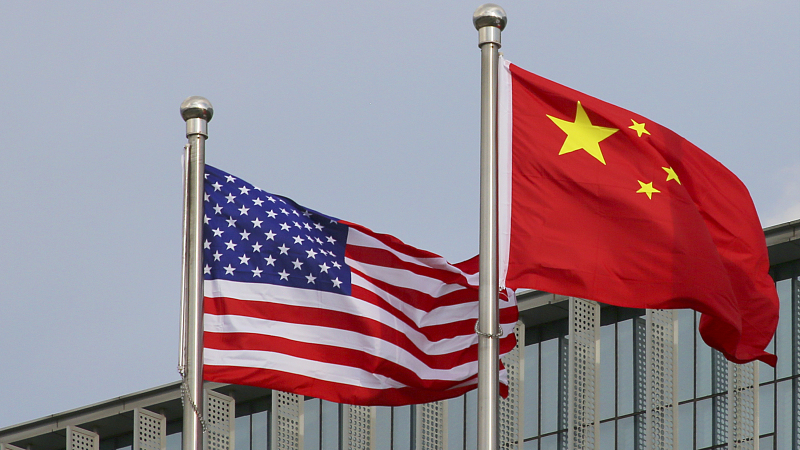
National flags of China and the US (Photo: CFP)
Politico reported Thursday, citing two people “familiar with the scheduling,” that US Secretary of State Antony Blinken is planning to travel to Beijing as soon as next week. China’s foreign ministry and the White House have not confirmed.
The US was “posturing” for talks with China and this did not mean an improvement in relations, Chinese experts told the People's Daily. Action not words were the key to improving relations, they agreed, and the US should respect China's “core interests.”
The US seeking talks with China released a positive signal in line with the expectations of the international community, said Diao Daming, an associate professor at the School of International Studies, Renmin University of China in Beijing.
“But the series of actions it has pulled recently reflect its duplicity and self-contradiction,” he said.
The US was trying to shape its own image as a promoter of communication, said Li Haidong, a professor at the China Foreign Affairs University in Beijing.
“We should be wary of the US purposely setting an agenda for China and then attributing the chilly state of China-US relations to the Chinese side,” Li said.
Recent interactions between Chinese and US officials contrast with tensions between the two militaries over the Taiwan Strait and the South China Sea: Chinese Vice Foreign Minister Ma Zhaoxu met US Assistant Secretary of State for East Asian and Pacific Affairs Daniel J. Kritenbrink on Monday.
Kritenbrink's trip followed China's top diplomat Wang Yi and US National Security Advisor Jake Sullivan's mid-May meeting in Vienna and China's Commerce Minister Wang Wentao's visit to Washington in late May.
At the same time US spokespersons continued to discusss the response of the Chinese People's Liberation Army (PLA) to US and Canadian warships transiting through the Taiwan Strait on Saturday.
Senior Colonel Shi Yi, a spokesperson at the PLA Eastern Theater Command, said in a statement that the PLA Eastern Theater Command organized navy and air forces, tracked and monitored the vessels, and handled the situation in accordance with law and regulations.
Diao said the contradictory behavior of the US showed on the one hand that the US continues to use provocative means to exaggerate the so-called “China threat” and unite with allies in an attempt to maintain hegemony, and on the other hand, the US needs China to cooperate on issues such as the economy, global finance, regional hotspots and addressing climate change.
The US engagement lacked sincerity, Li said.
“If the US does not respect China's core interests, even frequent contacts between the two sides will be difficult to achieve the effect of stabilizing relations,” he said.
In its communication with China, “the US is trying to put pressure on China to achieve the purpose of making China accept a series of demands,” Li said.
Both experts believed that both sides need to maintain a calm and pragmatic attitude towards possible unexpected situations between China and the US in order to push China-US relations back on track.


